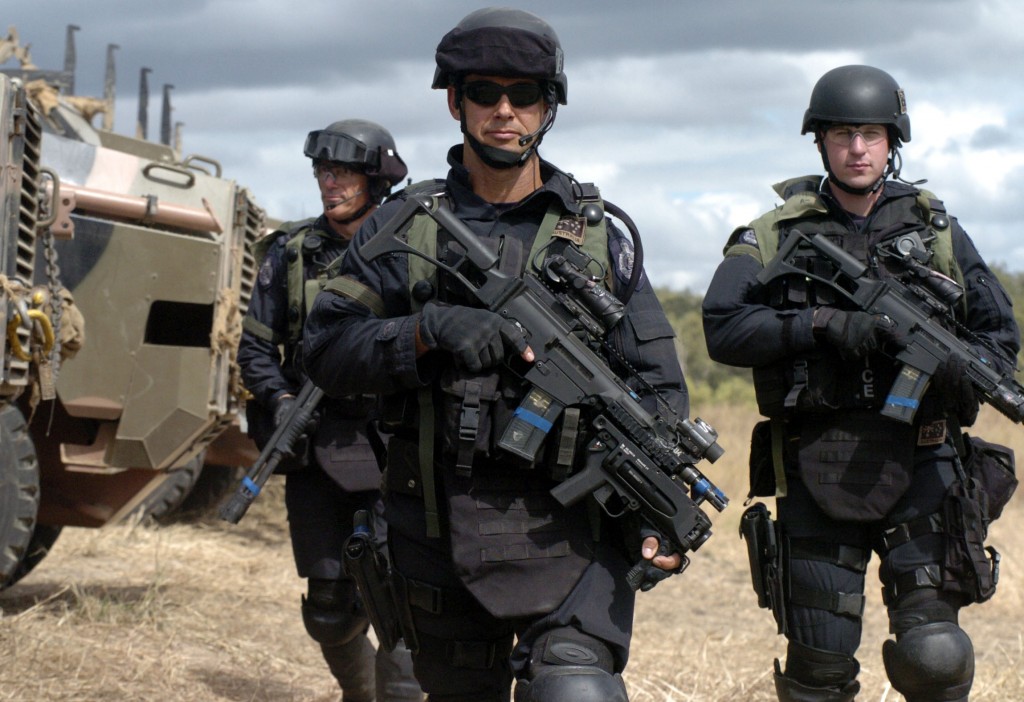
Last Tuesday’s Commonwealth budget saw a small increase in funding to the Australian Federal Police for next year. But the planned cuts to AFP in the years beyond are large—the Commonwealth contribution to their budget in four years’ time will likely be about 16% smaller than it is now.
That comes at a time when the demand for police services is increasing, and major changes loom on the law enforcement landscape.
A few major activities will end soon. These include drawdowns in overseas missions, an end to Operation Sovereign Borders, and a halt to the planned increase in AFP’s uniformed strength.
So while the raw numbers look bad, the cut mightn’t be so large in reality: forward estimates are only estimates, after all. Still, we can expect the combined pressure of wage increases and efficiency dividends to put pressure on AFP staffing levels, although it’s too soon to tell what the impact on operations might be.
One promising aspect of this budget was the revitalisation of the Confiscated Assets Account and foreign aid as funding streams for law enforcement. In particular, using funds from the Confiscated Assets Account to enhance policing is a positive move. If new unexplained-wealth laws are used well, this account could grow in coming years and fund even more policing initiatives. The government could improve the AFP’s ability to prosecute such cases by establishing a ‘fighting fund’ to mount some complex unexplained-wealth investigations. There’d be a positive return on investment from that.
While competition among Australia’s foreign aid priorities will increase, the continued use of this money to support security and stability in our regional neighbours is worth doing. It’ll ultimately promote better economic and safety outcomes for regional neighbours, and help Australian investors too.
It’s also important because governments should be in the business of providing law-enforcement aid—and it’s much better that field be dominated by democracies than by authoritarian states.
The key AFP component for foreign development projects is the International Deployment Group (IDG). The government plans to cut its budget by nearly 45% by 2017-18. That’s not overly alarming. Some overseas and domestic IDG commitments will wind down over the next few years. And should new crises occur, the government can inject funds just like it does to Defence.
But there’s a fine judgement to be made here. It would be unwise to reduce IDG funding too far too fast because this organisation is the nation’s ‘rapid reaction’ policing force. It holds officers trained and ready to be dispatched on operations quickly—much like the Army holds about 20% of its combat strength on short notice to deploy.
Cutting the IDG will probably make it harder for the AFP to provide rapid support to the justice sector of any failing state in the future. It would also reduce the government’s response options in a crisis.
The expanded investment in the National Anti-Gangs Task Force is welcome. Measuring the effectiveness of this initiative would be useful, because its future funding should be tied to the benefits achieved in terms of arrests, disruptions and enhanced cooperation across jurisdictional boundaries.
The government’s commitment to the ‘Safer Streets’ program ticks an election commitment, but it’s notable for the contradiction it poses. As something aimed at a grass-roots policing function, it seems more like a responsibility for local authorities or state governments, which have the clear constitutional responsibility for public safety within their jurisdictions. The federal government could’ve fulfilled this promise for less cost, and then left the field to the States.
But what’s most remarkable is the lack of public attention on police resources at the Commonwealth level. While other areas of national security expenditure are set to expand—with no updated rationale yet—spending on the vital law enforcement function is set to fall.
David Connery is a senior analyst at ASPI. Image courtesy of Department of Defence. Print This Post
Print This Post